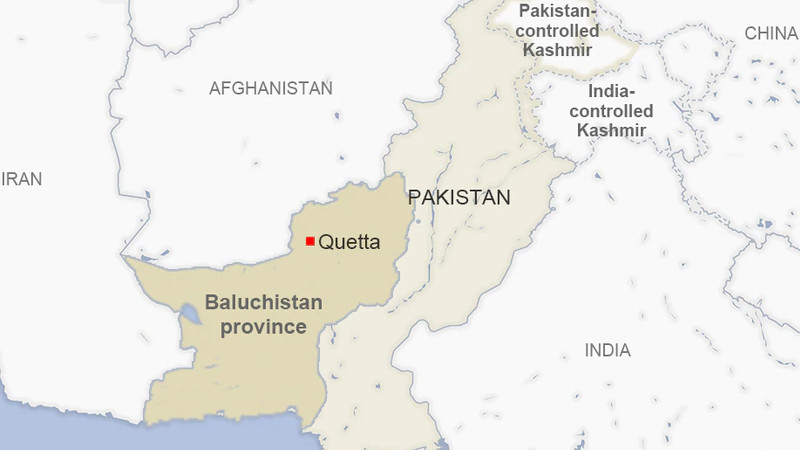By Chidinma Ewunonu-AlukoTwo medical experts have highlighted the health risks of excessive phone and social media usage, cautioning that they...
Vous n'êtes pas connecté
- English
- Français
- عربي
- Español
- Deutsch
- Português
- русский язык
- Català
- Italiano
- Nederlands, Vlaams
- Norsk
- فارسی
- বাংলা
- اردو
- Azərbaycan dili
- Bahasa Indonesia
- Հայերեն
- Ελληνικά
- Bosanski jezik
- українська мова
- Íslenska
- Türkmen, Түркмен
- Türkçe
- Shqip
- Eesti keel
- magyar
- Қазақ тілі
- Kalaallisut ; kalaallit oqaasii
- Lietuvių kalba
- Latviešu valoda
- македонски јазик
- Монгол
- Bahasa Melayu ; بهاس ملايو
- ဗမာစာ
- Slovenščina
- тоҷикӣ ; toğikī ; تاجیکی
- ไทย
- O'zbek ; Ўзбек ; أۇزبېك
- Tiếng Việt
- ភាសាខ្មែរ
- རྫོང་ཁ
- Soomaaliga ; af Soomaali
Rubriques :
 Maroc - NEWSDAY.CO.TT - A la Une - 12/07/2024 05:59
Maroc - NEWSDAY.CO.TT - A la Une - 12/07/2024 05:59
Understanding negative thinking
Dr Asha Pemberton teenhealth.tt@gmail.com HABITS ALLOW us to go through life with little or no conscious thought. In this way they are protective mechanisms that allow us to be more efficient in some areas and almost guarantee that some actions are built into our days without excessive energy expenditure. Habits occur automatically and thus require less input from us. In addition to the habits that involve daily actions and self-care routines, we also have habitual ways of thinking, automatic thought-processes that guide us. These affect our information processing, assumptions, preconceived notions and thought patterns. These habitual ways of thinking allow us to do a lot of our thinking without needing to think about it. For many young people and for a variety of reasons, it can become habitual to have negative or less supportive thoughts. These can lead them down a path of low mood, harmful behaviours and poor functioning. It is possible and very necessary the ways that negative thinking can be reframed. Tweens and teens can be their own worst critics. This is particularly true for those who tend to have a more negative outlook on life as they are prone to be especially down on themselves. They can get stuck in negative thinking patterns that contribute to depression, rev up their anxiety, or make painful emotions feel overwhelming. These negative thinking patterns are often unrealistic, but they can have significant impacts on our emotions, behaviours and world views. A common pattern of this thinking is “all-or-nothing” or “black-and-white” thinking. In this distortion young people are quite rigid and unable to see a range of possibilities. A situation is either helpful or not helpful. There will be happiness or complete gloom. Given the reality that life rarely ever exists in such extremes, young people with this type of thinking pattern generally focus on the worst possible outcome, which sends them down a spiral of despair. Such negative patterns can amplify themselves and young people then find darkness and sadness all around themselves. This is similar to another pattern called catastrophising. In this, young people perceive a given problem in a wildly out-of-proportion way. When distressed, they literally believe that it will be the end of the world. Parenting young people who have these thoughts patterns can be distressing as their dramatic emotional response to seemingly trivial life events can be overwhelming. Another common pattern involves unrealistic generalisations. In this, young people take one negative event or detail about a situation and create it into a universal pattern about their whole life. One poor outcome is experienced and they believe that they will be a failure, forever. Similar to this is labelling, in which people or situations are permanently branded with no openness to the possibility of change or that the original label is simply incorrect. Adolescents, due to the normal changes in brain development will generally apply a more emotional lens to themselves and their lives. This must be differentiated from patterns of persistent negative thinking, most of which are largely irrational. There are many reasons why negative thinking patterns develop. From a parental perspective the critical first step is understanding the patterns and recognising that they are unhelpful. Adding conflict and argument rarely solves or improves these patterns. Instead, interventions guided by mental health specialists are required. In order to fully understand the thought patterns and styles of young people, quality time must be invested by their parents and carers. The post Understanding negative thinking appeared first on Trinidad and Tobago Newsday.
Articles similaires
Excessive social media usage can lead to mental health challenges – Experts
By Chidinma Ewunonu-Aluko, Ibadan Two medical experts have highlighted the health risks of excessive phone and social media usage, cautioning that...
5 most bizarre reasons people got divorced
While modern relationships are complex, marriages are tougher! Weddings are one of the most important events in one's life and no one gets married...
Preparing Your Home For Sale: The Complete Guide
This article was written and submitted by Cameron Levitt, a Toronto-based real estate agent with RE/MAX Hallmark who writes about housing dynamics,...
Attzs warns: Some communities in zones could be stigmatised
INDEPENDENT senator Dr Marlene Attzs has warned that designating certain communities as zones of special operations could cause them to be...
Attzs warns: Some communities in zones could be stigmatised
INDEPENDENT senator Dr Marlene Attzs has warned that designating certain communities as zones of special operations could cause them to be...
Pakistan: Herof 2.0 In Balochistan – OpEd
The wave of attacks on Wednesday in Balochistan, which the perpetrators so identified Herof 2.0, is not a new story. Violence is marketed as a...
How to Live to Be 100 Years Old
(StatePoint) Living to 100 may sound extraordinary, but research suggests it’s more achievable—and enjoyable—than many people think. Studies...
How to Live to Be 100 Years Old
(StatePoint) Living to 100 may sound extraordinary, but research suggests it’s more achievable—and enjoyable—than many people think. Studies...
Health: Think arthritis means slowing down? Meet the 'Ultimate Boomer'
For a long time, arthritis has been treated like a “death sentence.” Once joint pain shows up - or an X-ray confirms “degeneration” - many...
Les derniers communiqués
-
Aucun élément






